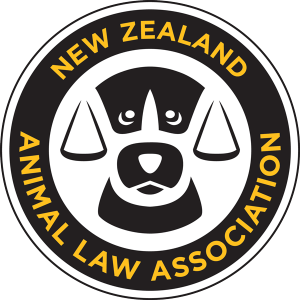When Your Animal is Harmed
In Pironga, two parties recently had a dispute over a cat which continually entered a neighbour's property and urinated in their home. The neighbour's solution to this issue was to shoot the cat.
The full story can be viewed on Seven Sharp here.
Seven Sharp subsequently approached NZALA for legal advice regarding what recourse a person has in the law if someone harms their companion animal in this way.
The advice was explained by Mike Hosking and Toni Street on Tuesday 13 September 2016 (video, from 9:18 minutes) and is set out more fully below.
What recourse do you have in the law if someone harms your animal?
Most people would be surprised to learn that it is not a crime under the Animal Welfare Act 1999 to kill an animal if it is done humanely.
The Act prohibits the causing of pain and suffering that is unreasonable or unnecessary in the circumstances in which it is inflicted—so it is the causing of suffering, rather than the act of killing, that is prohibited.
That said, a person who harms another's companion animal could still face both criminal and civil liability.
Oddly, knowingly threatening to kill or injure an animal carries a maximum penalty of 3 years’ imprisonment under s307 of the Crimes Act 1961 whereas actually killing an animal carries a maximum penalty of 3 months’ imprisonment or a fine not exceeding $2000 under s11 of the Summary Offences Act 1981 (under which the animal would likely be considered 'property').
However, in any event, harming another person’s animal may attract criminal liability under s269(2)(b) of the Crimes Act 1961, which prohibits “intentionally or recklessly and without claim of right destroying or damaging any property with intent to […] cause loss to any other person.”.
This section carries a maximum penalty of 7 years’ imprisonment.Additionally, if that person shot the animal they could in certain circumstances be prosecuted for firearms offences, such as the offence of carrying or possessing a firearm except for a lawful, proper and sufficient purpose under s 45 of the Arms Act 1983.
The maximum penalties under this section are a fine of $5,000 and imprisonment for up to four years. Whether or not the person carried or possessed the firearm for a lawful, proper and sufficient purpose will depend on the facts.
Possessing the firearm for the purpose of killing another’s animal simply because the animal is causing inconvenience or nuisance to the neighbour is unlikely to constitute a lawful purpose.
However, if the real purpose of the possession of the firearm was to shoot wild game or to destroy a dog running at large among stock or poultry (which are both permitted under the law), then the person may not be liable under this section.
The property status of animals also means that a person who harms another’s animal may face civil liability in tort, for example for trespass to chattels or conversion. Under such actions, the person may claim damages for the value of the animal.
Damages for intangible loss may also be available, to recognise the pain and suffering that the interference with the animal may have caused to its owner or carer.
What are the next steps?
If you find yourself in this situation, you should advise the Police and the SPCA immediately. You could also consider bringing a claim in the Disputes Tribunal if the claim is for less than $15,000—it is a relatively affordable and efficient process.
You should also consider consulting a lawyer who can advise you of your rights.

